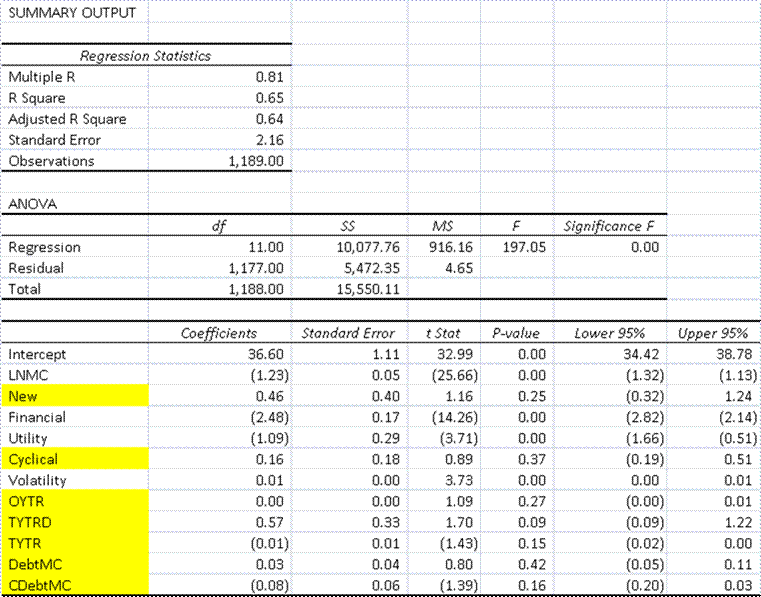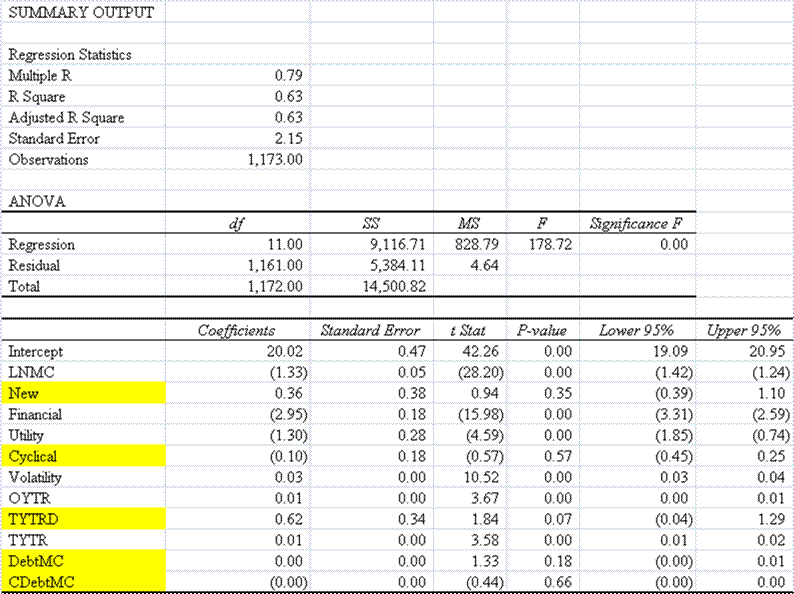Book Review: The Heretics of Finance
I’m not against technical analysis per se, at least not anymore.? I don’t think I understand it well, but after reading The Heretics of Finance, I’m not sure anyone really does.? Let me explain.
When I wrote for RealMoney, I often thought it was two sites in one.? Technical analysts on one side, and Fundamental analysts on the other.? Little interaction, except to snipe at each other every now and then.? I’m happy to say that I stayed above the fray, because as a corporate bond manager, technical analysis helped me manage market risk better.? I wasn’t sure how to apply it to equities, though, particularly post-decimalization.
I posted something like this three times on RealMoney, and aside from one private response from Helene Meisler, no one ever bit on my questions regarding technical analysis:
| David Merkel | ||
| The Two Questions on Technical Analysis | ||
| 2/22/2008 12:15 AM EST |
I received some e-mails from readers asking me to post the questions that I mentioned in the CC after the close of business yesterday. Again, I’m not trying to start an argument between fundies and techies. I just want to hear the opinions of the technicians. Anyway, here goes:
1) Is there one overarching theory of technical analysis that all of the popular methods are applications of, or are there many differing forms of technical analysis that compete against each other for validity (and hopefully, profits)? If there is one overarching method, who has expressed it best? (What book do I buy to learn the theory?)
2) In quantitative investing circles, it is well known (and Eddy has written about it recently for us) that momentum works in the short run, and is often one of the most powerful return anomalies in the market. Is being a good technician just another way of trying to decide when to jump onto assets with positive price momentum for short periods of time? Can I equate technical analysis with buying momentum?
To any of you that answer, I thank you. If we get enough answers, maybe the editors will want to do a 360.
Position: none
That’s where I’m coming from.? In The Heretics of Finance, I received half an answer to my first question, and no answer to my second question.? Now, I enjoyed the book a great deal; it is well-designed.? The book begins by interviewing thirteen well-known technical analysts:
- Ralph J. Acampora
- Laszlo Birinyi
- Walter Deemer
- Paul Desmond
- Gail Dudack
- Robert J. Farrell
- Ian McAvity
- John Murphy
- Robert Prechter
- Linda Raschke
- Alan R. Shaw
- Anthony Tabell
- Stan Weinstein
Each chapter asks them a bevy of similar questions.? As I read the first thirteen chapters, my growing conclusion was many of them all do different things, but they all call what they do technical analysis.? I did get a half answer to my first question, in that many of them pointed to the books, Technical Analysis of Stock Trends, 8th Edition, and Technical Analysis of the Financial Markets: A Comprehensive Guide to Trading Methods and Applications (New York Institute of Finance)
to a lesser extent, as definitive (and large) reference books on TA that give what they think is the overarching theory.? So, maybe I have an answer to my first question, but I’ll have to buy the books to understand it.
The next seven chapters ask all of the interviewees the same questions, allowing them to agree or disagree with each other.? The questions were asked to each person separately, in interviews from 2004-2005.? It would have been more interesting to have them all in one room, so that they could debate more, and question each other.
That said, many of the questions were interesting:
- Does lack of academic support bother you?
- Can TA be learned from books, or only through experience?
- Are there universally valid TA rules?
- Is it an art or a science?
- How big of a role does luck play?
- Do those that incorporate astrology into TA harm the discipline?
- How much can TA be mechanized?
In the introduction, the authors, Lo and Hasanhodzic saw increasing acceptance of TA by academics, sometimes directly (challenging the weak form of the efficient markets hypothesis), or via behavioral finance (how value investors do TA).
There was no answer to my second question, as to whether TA is just a way of implementing a momentum strategy.? Surprising to me, Lo and Hasanhodzic did not think to ask the question.? (My opinion: aside from a few technicians that like to try turning points, yes, TA is a way to implement momentum investing.)
Who Would Benefit from this Book
If you want a taste of a wide number of accomplished technicians, this book will give you that.? It wilol also give you jumping-off points into TA literature and TA-friendly academic work describing Technical Analysis.? If you are into some of the main characters in TA, this tells their stories, and elucidates the attitudes of disciplined appliers of TA.
You can buy it here:The Heretics of Finance: Conversations with the Leading Practitioners of Technical Analysis.
PS — Not many book reviewers read the books that they review.? They read the summary that the PR flacks send, and rely heavily on that.? I throw away those summaries, and read the books.? That takes time, but I like reading books, and when I wrote for RealMoney, I often missed reading books.? Now I read them more, and you can benefit from that, because I don’t always endorse the books that I review.
I don’t have a tip jar, but if you buy anything through Amazon, after entering through a link on my site, I get a small commission, and your costs don’t go up.? I like taking? the fees out of Amazon, and not out of my readers.





December 21st, 20081:18 am at EditMost of the questions you ask have been answered on the public record. They are available for our evaluation.
In the case of Lehman, the Fed could not take the collateral because it did not qualify. If they had, you would have been leading the charge in objecting. Treasury had no authority.
In the case of AIG, there was concern about counter-party risk that extended worldwide. We got a demonstration of that from Lehman.
I am mystified by your criticism of the Obama administration ? yet to weigh in on this.
As a careful, loyal, respectful, and interested reader of your work, I have some questions. You have been critical of elected officials, appointed officials, independent bodies ? in fact ? every agency of government. Just how do you think we should be setting policy?
Is there some other country or system that is doing this better?
Just wondering?